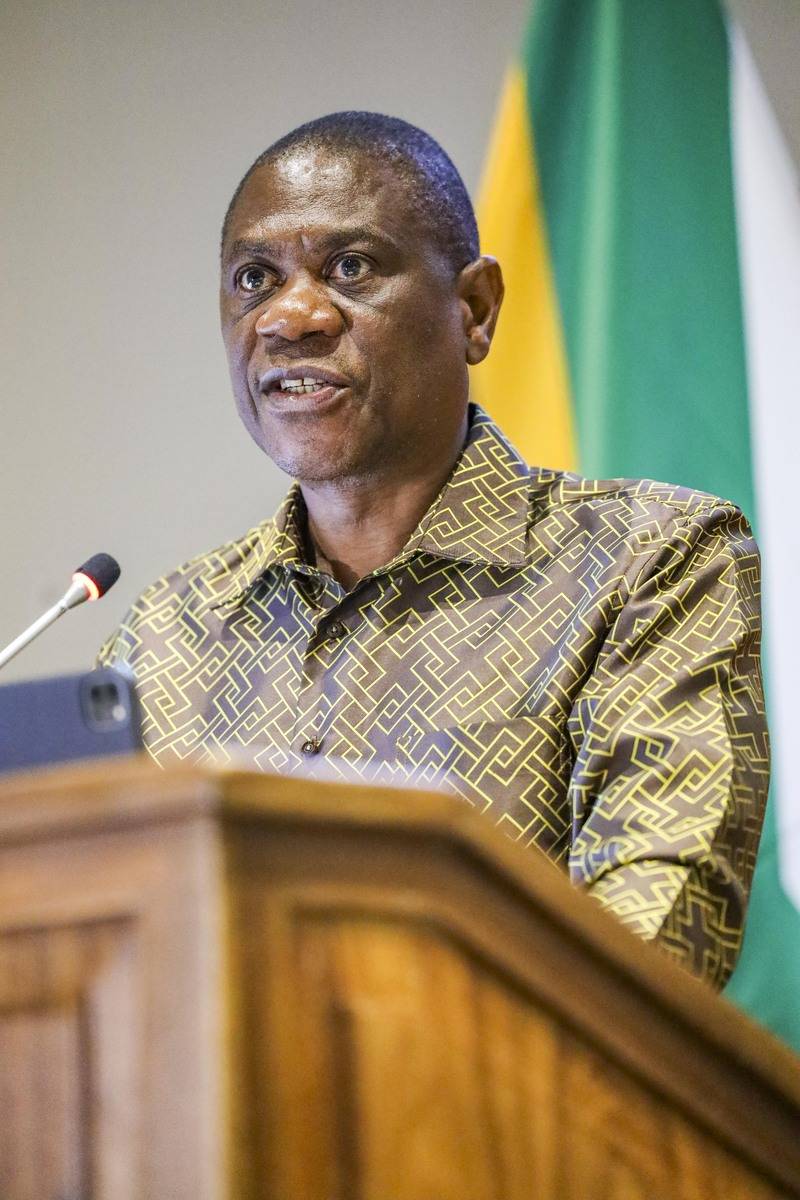Deputy President Paul Mashatile Chairs Human Resource Development Council Retreat In Joburg
Deputy President Paul Mashatile has identified the country’s water issues as stemming from aging infrastructure and flawed reticulation systems in municipalities. Speaking in parliament on Thursday, Mashatile highlighted that despite the significant reserves in the country’s dams, the water is not effectively reaching the people due to leaks, outdated pipelines, and neglected maintenance in the supply chain.
Reticulation, which refers to the network of pipes and systems that distribute water from a central source to users, plays a crucial role in exacerbating the challenges faced by vulnerable communities in accessing clean water. Regions such as the Eastern Cape, Mpumalanga, Limpopo, North West, and parts of Gauteng have been particularly affected by these issues.
Financially distressed municipalities are unable to maintain or upgrade their water infrastructure due to a lack of resources. This has led to a situation where municipalities collectively owe utilities billions of Rands, threatening the stability of the water supply in troubled provinces.
In response to these challenges, Mashatile and Water and Sanitation Minister Pemmy Majodina have been engaging with Finance Minister Enoch Godongwana to secure funds to address the structural issues in water infrastructure. They have formed a water task team to coordinate interventions at the municipal level and reinforce the system’s gaps.
Mashatile also highlighted the emergence of the “water mafia,” which capitalizes on water shortages to profit by selling water to desperate residents. These rogue suppliers tamper with infrastructure, exacerbating the existing problems faced by municipalities.
To address these issues, Mashatile emphasized the need for sustainable solutions that go beyond financial bailouts and focus on municipal self-sufficiency and accountability. He stressed the importance of enforcing a culture of payment to ensure that municipalities can pay water authorities for the services provided.
With water scarcity becoming an urgent issue in Gauteng, where leaks and high consumption rates have pushed the province to near-crisis levels, Mashatile announced a combined approach with other levels of government to monitor consumption levels and address leaks and illegal connections that deplete reserves.
As the province operates under level one water restrictions, there is a possibility of escalating to levels two and three if consumption patterns are not controlled. Mashatile emphasized the need for cooperation between national and provincial leaders to streamline the crisis response and avert further disruptions to the water supply.
In conclusion, Mashatile reiterated the importance of addressing the root causes of the water crisis, including outdated infrastructure, financial strain on municipalities, and the emergence of the water mafia. By working together and implementing sustainable solutions, South Africa can overcome its water challenges and ensure access to clean water for all its citizens. The importance of working together as a nation to address pressing issues was emphasized by the deputy president. He highlighted the urgent need for deeper investment and policy reforms to tackle the water crisis effectively. It is essential to build a robust system that can meet the needs of a growing population while also taking into account environmental concerns.
Empowering municipalities to become financially resilient is crucial in ensuring sustainable water management. This process requires not only financial support from the central government but also a focus on local accountability. By strengthening the financial capacity of local governments, we can enhance their ability to provide essential services such as water supply to their communities.
The deputy president’s call for collaboration and investment in water infrastructure reflects a commitment to finding long-term solutions to the water crisis. By working together and implementing sound policies, we can build a system that is resilient and capable of meeting the water needs of both current and future generations.
In conclusion, it is clear that addressing the water crisis requires a multi-faceted approach that involves both government intervention and local empowerment. By investing in water infrastructure and implementing effective policies, we can ensure a sustainable water supply for all. It is imperative that we work together as a nation to overcome these challenges and create a better future for our communities.







